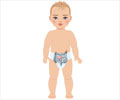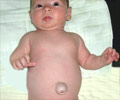A team of Indian researchers reveals that the death of a father, especially during the late childhood or early adolescence, could have a long term negative effect on a child’s later success in life.

"The loss of a father can result in lower adult living standards for the bereaved children. Not only is a child emotionally affected, but the lack of a father's earning power can cause children to get married younger or drop out of school in order to work," said Shenk, assistant professor of anthropology in MU's College of Arts and Science.
For her study, Shenk interviewed 403 older men and women of Bangalore, India about their families and examined the effects of death on their 1,112 children.
The death of the father before a child reached 25 years old correlated with lower educational achievement, younger ages at marriage and smaller income later in life.
However, the effects were significantly smaller for children who lost their fathers when they were younger than five years old or older than 20. Older children and adolescents between 11 and 15 years of age showed the largest decrease in later success.
"For young children who lose their fathers, other factors can take over to compensate. Infants and young children often don't remember their lost fathers, and in many cases another family member may step in to care for them. Also, since young children are not yet in school, their educations don't suffer as much," Shenk said.
Advertisement
Source-ANI










